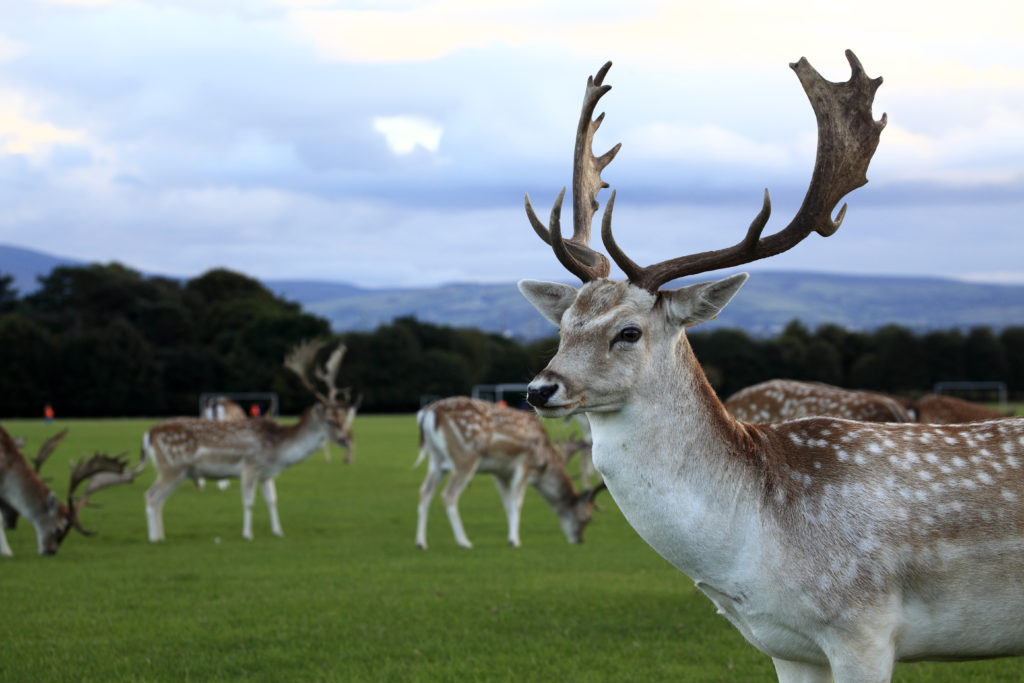A CAMPAIGN has been launched to stop people feeding the deer at Dublin’s Phoenix Park as the human interaction is causing the animals “health issues”.
Research conducted by University College Dublin (UCD) has uncovered a range of negative effects people feeding the deer has had on their behaviour and wellbeing.
Their findings show the deer at the park have been fed foods such as chocolate, crisps, fizzy drinks, bread and carrots.
Male deer tend to be given less healthy food, the report states, which is causing them to have smaller antlers and be less successful in mating.
The presence of humans in close proximity to the deer is also disrupting male-female encounters, the research has found, which “impacts the quality of males accessing females for reproduction and leads to interference in sexual selection and female productivity”.
They even had some deer test positive for Covid-19, which indicates "that at some point humans passed this disease to them".
 Deer at Phoenix Park in Dublin are being negatively impacted by human interaction
Deer at Phoenix Park in Dublin are being negatively impacted by human interaction“The result is a significant alteration in the natural behaviour patterns of the deer,” a spokesperson for the Office of Public Works, which is launching its Protect Our Park – Don’t Feed the Deer campaign today, said.
“Feeding disrupts the deer’s natural foraging instincts, leading to dependency on human-provided food sources,” they explain.
“This causes the deer to seek out human interaction, which can lead to aggressive encounters in their aim to find food.
“This dependence not only affects their health but also alters their social dynamics and habitat utilisation within the park.”
Failure to change visitor habits and awareness about feeding the Park's iconic deer could have long-term ramifications the OPW said today, including increasing the risk of transmitting disease, increasing the risk of human injuries as deer seek out food from humans, and increasing stress to the deer with more unwanted human interactions.
“By keeping our distance from the deer and refraining from feeding them, visitors can play a pivotal role in safeguarding the future of these magnificent creatures, who have called the Phoenix Park home for over 350 years,” Kieran O’Donnell, the Minister of State for the Office of Public Works, said.
“Feeding disrupts the delicate ecological balance and could ultimately jeopardise the deer population’s existence in the park,” he added.
“Dubliners take immense pride in the Phoenix Park and it is a wonderful place to visit for locals and tourists.
“I am asking all visitors to support this campaign and keep these iconic deer safe in their natural home.”

